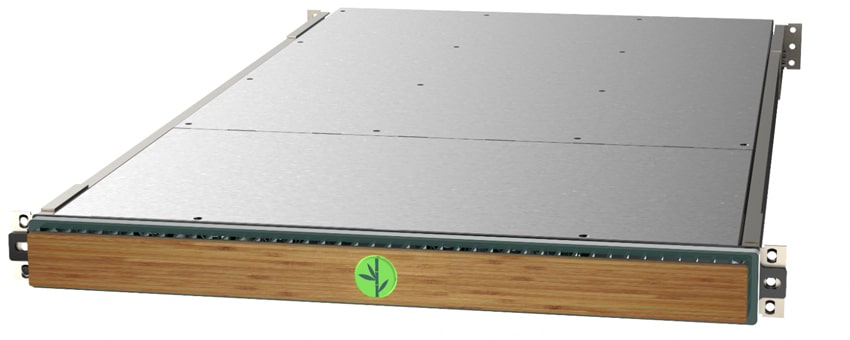Today Bamboo systems announced what it is calling a next generation server, the Bamboo B1000N Series. The B1000N Series is based on the company’s patent-pending Parallel Arm Node Designed Architecture (PANDA). Bamboo states that its new server series can bring unprecedented levels of compute density and sustainability to servers.

Founded in 2015 under the name Kaleao, the company was restructured at the end of 2019 and became Bamboo Systems. The company sees its mission to revolutionize server architecture that hasn’t really changed since the 1980’s. With modern software, users need modern servers. Specifically, Bamboo servers are built and optimized for microservices-based software. This makes them a good choice for high performance workloads and edge processing. They also make the bold claim of costing one-half of a legacy server with 75% of the energy consumption, and 80% of the rack space.
The secret sauce in the servers are the above-mentioned PANDA. According to the company, PANDA-based servers use embedded systems methodologies designed to run modern microservices-based workloads while consuming minimal energy and delivering industry-leading density for high throughput computing. This would make a Bamboo server ideal for Kubernetes-based applications, edge computing, data analytics and AI/ML deployments.
Instead of using some of the CPUs typically associated with high-performance in the enterprise, Bamboo’s PANDA-based systems utilize Arm processors. Using Arm allows them to skip some of the well-known traditional server architecture bottlenecks, caused by the need to share limited resources. This leads us to the hardware for the Bamboo B1000N. The server comes with either one or two blades in 1U, with each blade containing four compute nodes and a non-blocking embedded L3 switch exposing dual 40Gb QSFP uplink ports. Each of the compute nodes are independent Arm-based servers that can run Linux or another compliant OS. Nodes use a SolidRun COM Express Type 7 module utilizing the NXP Semiconductors Layerscape LX2160A with 16 Arm Cortex-A72 processors with up to 64GB of DDR4 ECC DRAM, hardware accelerated dual 10Gb/s network interfaces and an integrated PCIe NVMe drive, up to 8TB.
Bamboo gives us an example in the form of a fully configured B1008N. This device consists of 8 servers providing 128 cores, 16 DDR4 memory channels to 512GB DRAM, 24GB/s to 64TB of NVMe storage, fed through 160Gb/s network bandwidth. This is done in a 1U footprint and the company claims that it comes in at roughly half of the cost of a traditional Intel-based server.
Bamboo servers have their own UI that is called the Pandamonium Management Software. This software is said to be intuitive and based on Bamboo’s REST API for integration with orchestration platforms. Pandamonium provides the usual suspects like control over system configuration and status updates of components as well as the ability to power down nodes not being used for cost savings.
Bamboo B1000N Series benefits include:
- Typical savings of 50% of acquisition cost as compared to equivalently configured x86 systems
- Up to 75% less energy consumption
- Up to 80% less rack space used
- Directly attached NVMe flash storage to every application processor to reduce the need for large amounts of DRAM or network bandwidth, delivering high performance throughput to large locally cached datasets
- Integrated NIC with hardware encryption/decryption and compression/decompression offloading work from the application processor
- Dedicated network resources for each node
- Significantly reduced external switch and cable management costs
- Balanced system resources deliver the computing infrastructure for high-throughput and modern microservices-based software designs
Availability and Pricing
The Bamboo B1000N starts at under $9,995 and will be available in the USA and Europe in the third quarter of this year.




 Amazon
Amazon